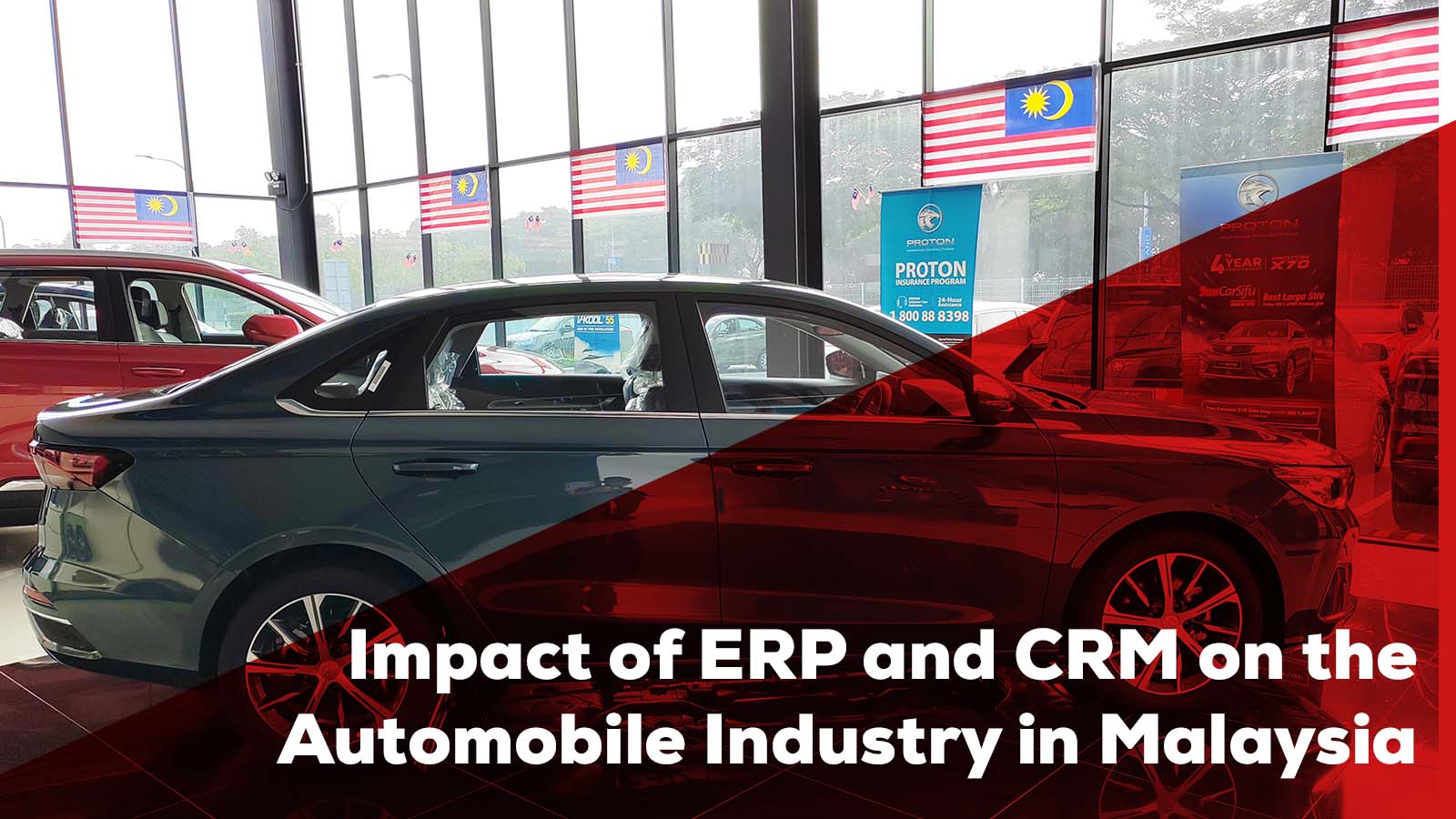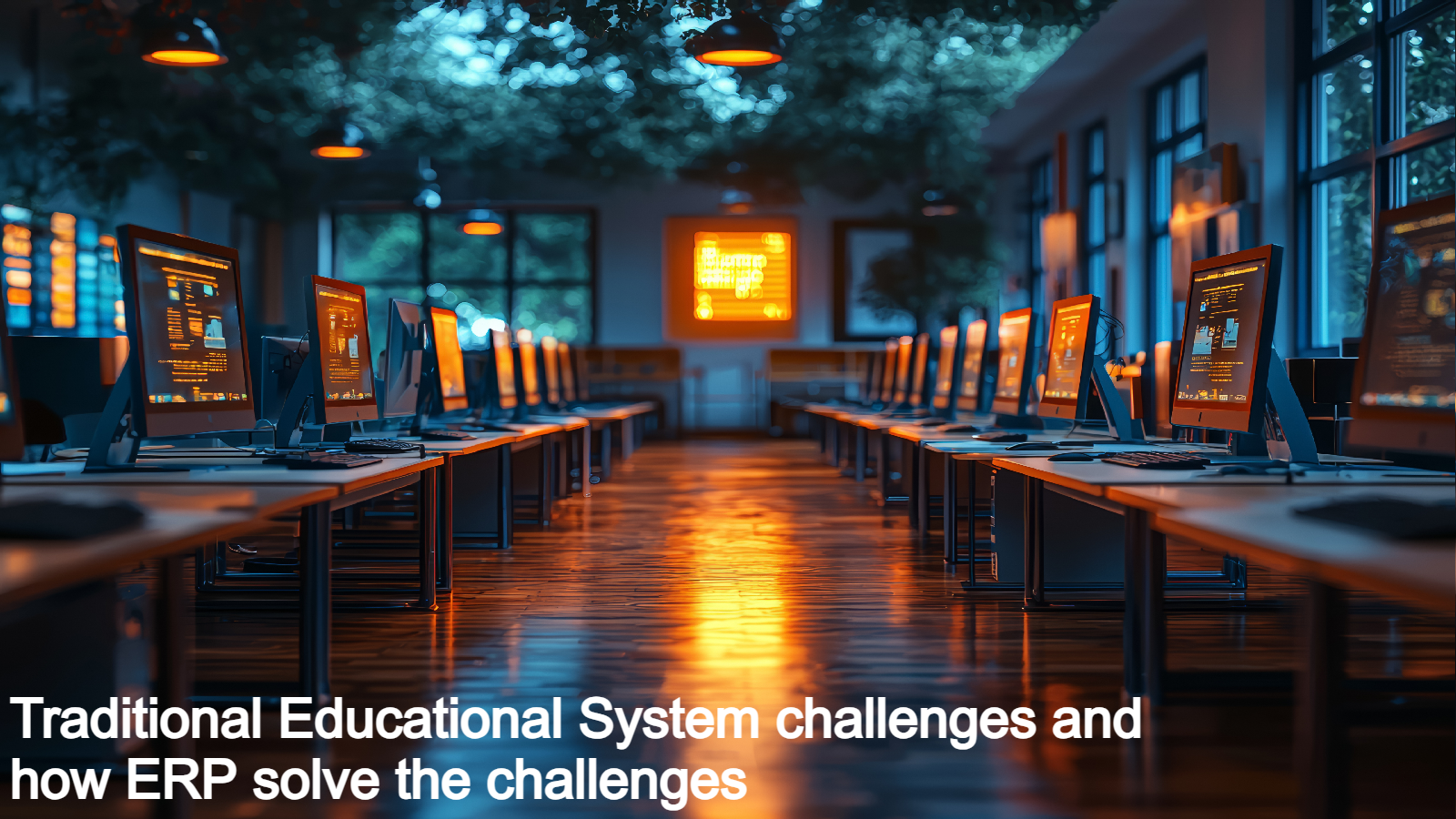Introduction
In the fast-paced world of technology, the impact of Enterprise Resource Planning (ERP) and Customer Relationship Management (CRM) systems is significant. They have emerged as indispensable tools for modern businesses.
This blog looks into the specific influence these tools have had on the automobile industry in Malaysia, highlighting how they’ve revolutionized operations, customer interactions, and overall efficiency.
Understanding ERP Software
The Integration Advantage
Enterprise Resource Planning serves as the backbone of the automobile industry. Its integration capabilities streamline various processes, from supply chain management to production planning. In Malaysia, automotive businesses are leveraging ERP systems to synchronize data, enhancing collaboration and decision-making.
Streamlining Production Processes
Malaysia’s automobile manufacturing landscape has witnessed a huge shift with ERP implementation. From order processing to inventory management, ERP ensures that every aspect of the production process is running smoothly, resulting in reduced lead times and optimized resource utilization.
The CRM Revolution
Personalized Customer Experiences
CRM systems have redefined how automobile companies in Malaysia engage with their customers. Through data-driven insights, CRM enables personalized marketing strategies, targeted promotions, and efficient support services, fostering long-lasting customer relationships.
Enhancing Customer Satisfaction
In a competitive business world, customer satisfaction is vital. CRM tools empower automotive businesses to address customer needs promptly and effectively. Real-time feedback made possible with CRM software has become instrumental in refining products and services based on consumer preferences.
ERP and CRM Software Synergy: A Dynamic Duo for Malaysian Automakers
Collaborative Efficiency
Implementing ERP and CRM software systems is a game-changer for the automobile industry in Malaysia. With seamless data flow between these systems, manufacturers can align production with market demands, while also enhancing customer experiences through targeted marketing and after-sales support.
Data-Driven Decision Making
ERP and CRM collaboration provides Malaysian automakers with valuable real-time updates. From predicting market trends to optimizing production schedules, these systems empower decision-makers to stay ahead of the competition.
Overcoming Challenges: Navigating the Implementation Journey
Initial Adaptation Hurdles
While the benefits are many, implementing ERP and CRM systems in the Malaysian automobile industry has its challenges. Overcoming initial resistance and ensuring a smooth transition requires a strategic approach and comprehensive training programs.
Return on Investment (ROI) Realities
Analyzing the ROI of ERP and CRM implementation is crucial. Companies experience improved operational efficiency, cost reduction, inventory optimization, sales growth, and data-driven decision-making within a year or two. Other benefits such as enhanced customer satisfaction, improved collaboration, and increased employee satisfaction and productivity can be seen over time.
Future Outlook: Innovations Shaping the Automotive Landscape
Smart Manufacturing and IoT Integration
Integration of ERP software with the Internet of Things (IoT) will enable real-time monitoring of production processes, predictive maintenance, and improved overall equipment efficiency. This innovation is expected to streamline manufacturing operations, reduce downtime, and enhance the quality of automotive products.
Enhanced Customer Engagement through AI in CRM
The use of AI in CRM will provide a more personalized customer experience. AI-driven analytics will enable companies to anticipate customer needs, offer tailored solutions, and enhance the overall customer experience.
Blockchain for Supply Chain Transparency
ERP systems will leverage blockchain technology to enhance transparency in the automotive supply chain. This innovation is crucial for ensuring the authenticity of parts, reducing the risk of counterfeiting, and will contribute to a more secure and efficient supply chain ecosystem in the automotive industry.
Emphasis on Cybersecurity Measures
With the increasing digitization of automotive operations, there will be a heightened emphasis on cybersecurity measures within ERP and CRM systems. Protecting sensitive customer data, and intellectual property, and ensuring the integrity of business operations will be paramount.
Conclusion
The impact of ERP and CRM automobile industry in Malaysia is beyond efficiency. It signifies a digital transformation, leading the sector into the future of innovation. Malaysian automakers embracing these technologies are not only meeting the demands of the present but are also positioning themselves for the opportunities and challenges of tomorrow.
Frequently Asked Questions [ERP and CRM Impact Automobile Industry Malaysia]
What is the current state of the Automobile Industry in Malaysia?
The Automobile Industry in Malaysia has witnessed substantial growth, contributing significantly to the country’s economy.
How are ERP systems transforming the operations of automobile manufacturers in Malaysia?
By integrating various business processes like production, supply chain, and finance, ERP systems enhance efficiency and decision-making. According to a recent industry report, adoption rates of ERP systems in Malaysian automobile companies have increased by 60% over the past two years.
What specific challenges do ERP implementations pose in the Malaysian automobile context?
While ERP systems offer numerous advantages, challenges such as initial implementation costs and resistance to change exist. Organizations must invest in proper training and change management strategies.
In what ways does CRM impact customer relations for Malaysian automobile manufacturers?
CRM systems are instrumental in enhancing customer relations for automobile manufacturers in Malaysia. By centralizing customer data, companies can personalize interactions, improve customer satisfaction, and increase loyalty.
What are the key challenges in implementing CRM systems in the Malaysian automotive sector?
Implementing CRM systems in the Malaysian automotive sector may face challenges such as data integration issues and resistance from sales teams. Industry studies highlight the importance of addressing these challenges through comprehensive training programs and continuous system optimization for sustained success.
How do ERP and CRM systems collectively contribute to overall business intelligence for Malaysian automobile companies?
The integration of ERP and CRM systems creates a holistic approach to business intelligence for Malaysian automobile companies. By consolidating data from various departments, these systems empower decision-makers with actionable insights. A recent survey shows that companies with integrated ERP and CRM solutions experience a Y% improvement in data-driven decision-making.
What role does data security play in the implementation of ERP and CRM systems in the Malaysian context?
Data security is a significant concern in the implementation of ERP and CRM systems in Malaysia. Automobile companies are increasingly investing in robust cybersecurity measures to safeguard sensitive customer and operational data.








